Oceans are in trouble
But Understanding Plankton Can Help Us Protect Them
Climate change and pollution are serious threats to all ocean life, from giant whales to tiny plankton.
But there is still time to save it.
To do that effectively, we need smart, data-driven policies and effective science-to-policy feedback loops. Only then we can truly protect marine biodiversity and mitigate the effects of climate change on a large, international scale.
It turns out, understanding plankton might just be the way to go.
Plankton Monitoring Tool
is Changing the Game in Ocean Conservation
To help bridge the knowledge gap and support global policymakers in creating effective marine conservation regulations, a joint science-to-policy project was launched to create MAPMAKER – a web-based, analytical tool for plankton monitoring.
The app provides information on the marine ecosystem’s current state and projected future plankton diversity changes in different climate scenarios. Such information is vital for preserving ocean health and creating effective and impactful laws on the international policy level.
It focuses on plankton because of its importance to the marine ecosystem and natural properties, such as extreme sensitivity to environmental changes and marine pollution.
It is the first global plankton diversity and biogeography visualization as a function of time and emission scenario.
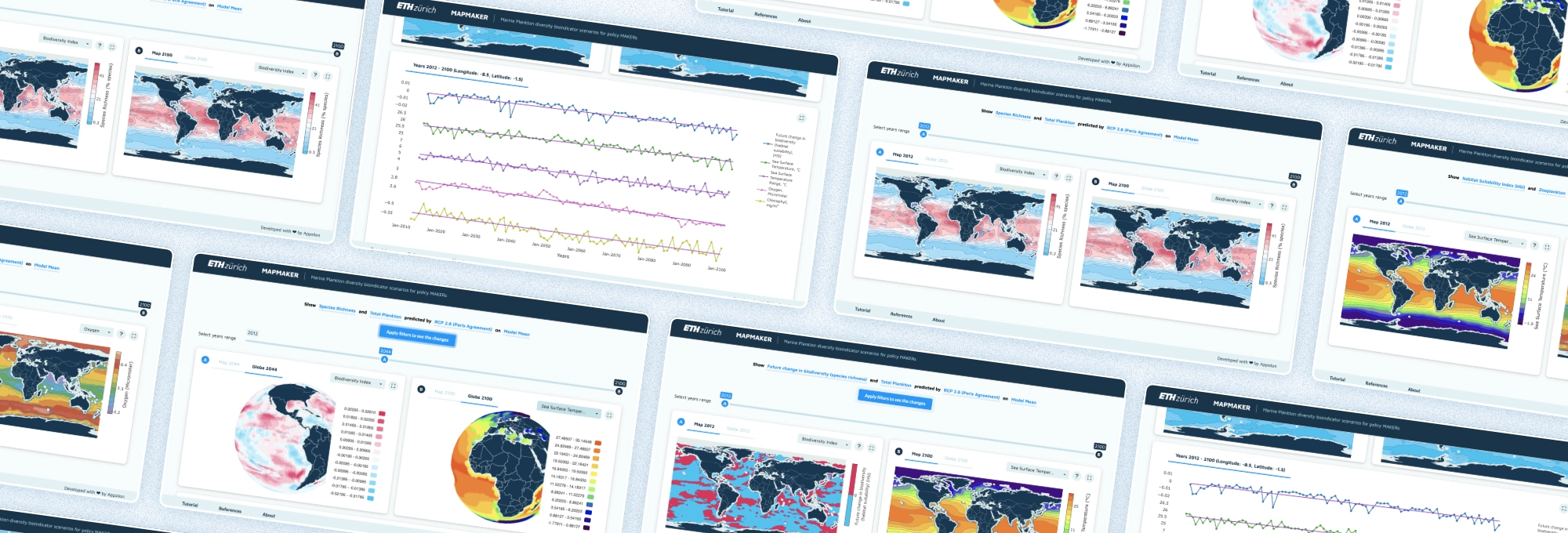
MAPMAKER was created by IUCN Global Marine and Polar Programme (GMPP) and ETH Zürich Environmental Physics research group (UP), supported by the Geneva Science-Policy Interface and developed by Appsilon.
Protect Plankton – Protect Ocean’s Health
Plankton are the superstars of the ocean.
Yet, they are still one of the lesser-known and understood marine communities.
Why?
Firstly, there is a vast diversity of marine plankton species – tiny organisms carried by tides and currents, which cannot swim well enough to move against those forces. Secondly, until recently there was no easily available, global-scale observational data.
Right now, data availability is increasing exponentially each day. But this poses new problems.
How to process, analyse and interpret such vast amounts of data to know how to best protect plankton – a crucial marine ecosystem?
MAPMAKER is the answer to that. It supports international policymakers by providing them with the missing information necessary for the protection of global plankton diversity and for maintaining oceans’ health.
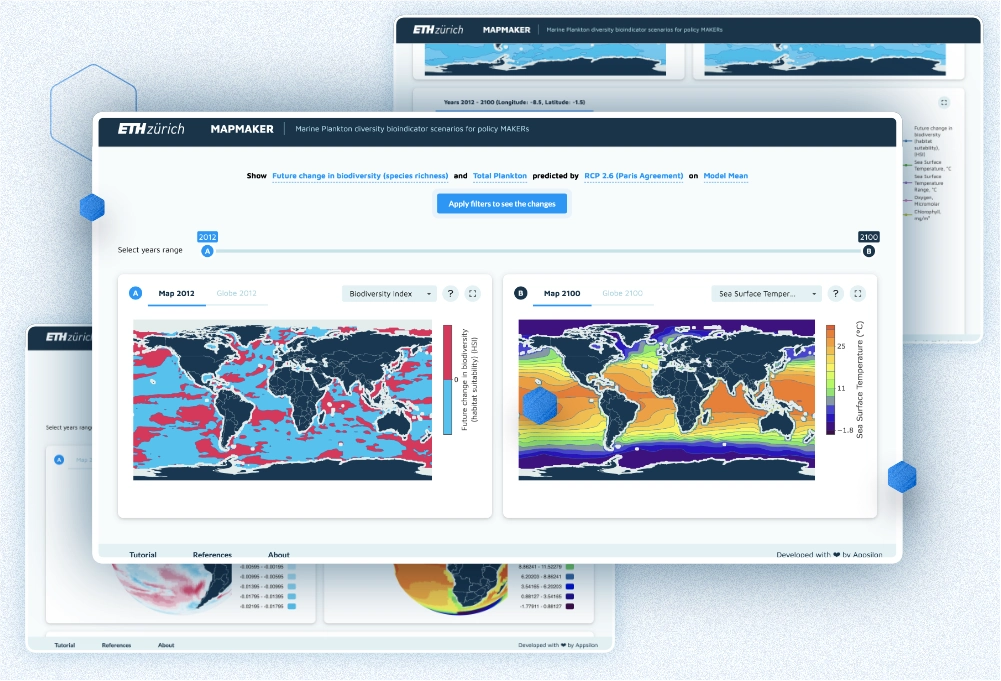
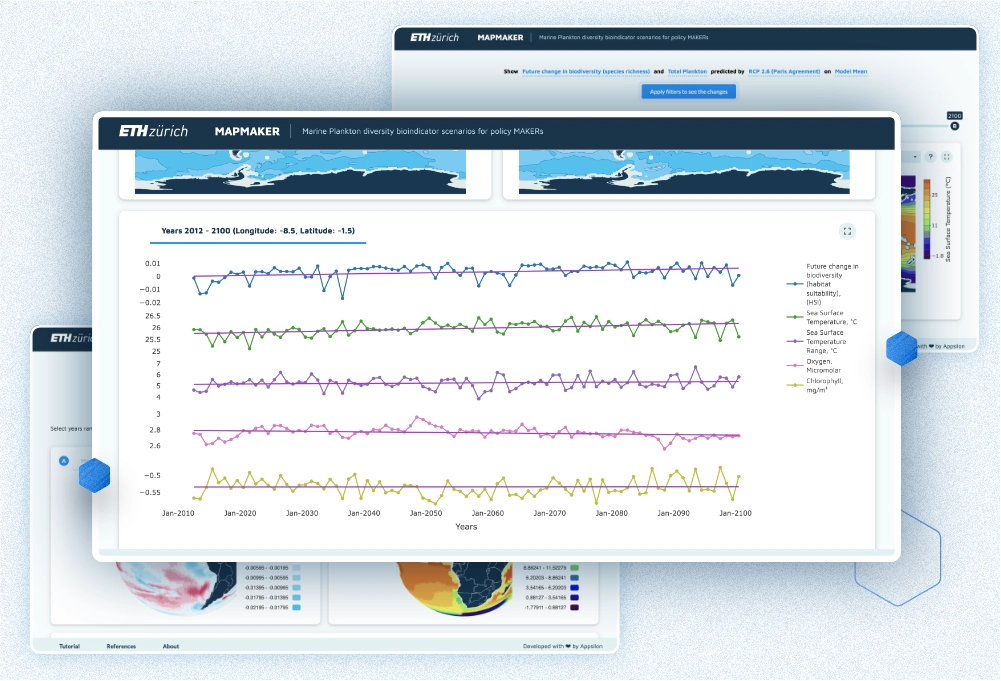
Testimonials
So far, we know very little about who lives where, and why, and with whom in plankton communities, but at present, the data availability is increasing exponentially each day and the rate of knowledge increase poses new problems in terms of data analysis and interpretation
Dr. Meike Vogt, senior scientist at ETH Zurich
Working with professionals from the data analytics team at Appsilon greatly increased the performance and user friendliness of our data application, which means that many more user groups can be catered for. I am thrilled to see that the new MAPMAKER app finally fulfils the needs of policy makers in terms of its design and features.
Dominic Eriksson, a scientist and PhD student at ETH Zurich
Why is Plankton so important?
They export carbon from the surface layers to the deeper ocean
in the process known as the ocean’s biological carbon pump.
They form the base of the entire marine food web.
They help regulate Earth’s climate by consuming
carbon dioxide and releasing oxygen.
Their natural properties make them extremely sensitive to environmental changes and marine pollution, making them invaluable in assessing the ecosystem’s health.
Understanding how plankton reacts to changes to the ecosystem is important to evaluate its ability to serve as food for other animals and its role in regulating cycles of carbon in the ocean.
Plankton diversity monitoring tool built to enable
data-driven decision-making for better climate regulations.
Visit MAPMAKER Project Page
Better Climate Regulations
Data4Good
Learn More
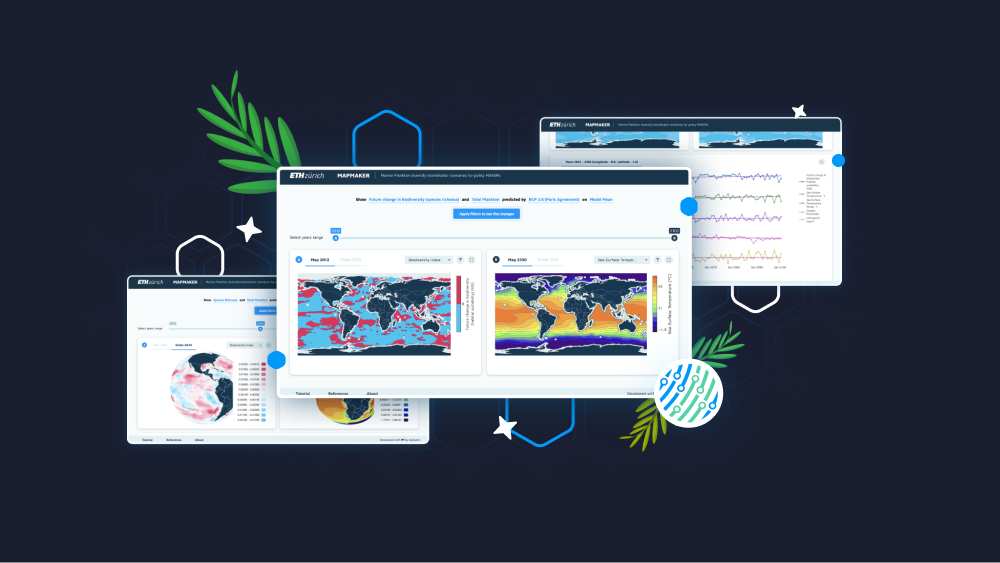
Visualizing Plankton Diversity and Climate Change: Impacting Policy with R Shiny
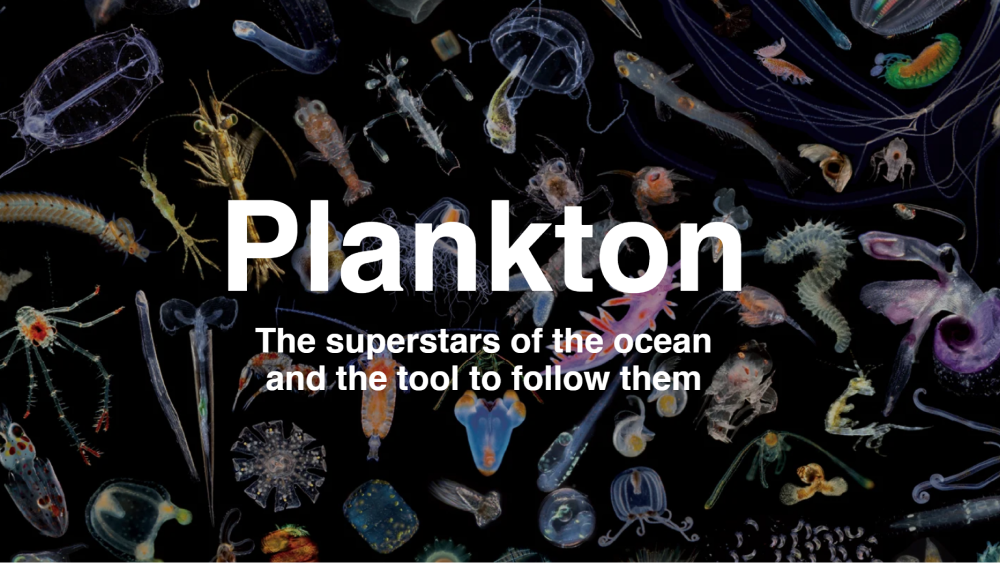
Plankton are the superstars of the ocean. A multimedia story from IUCN.


